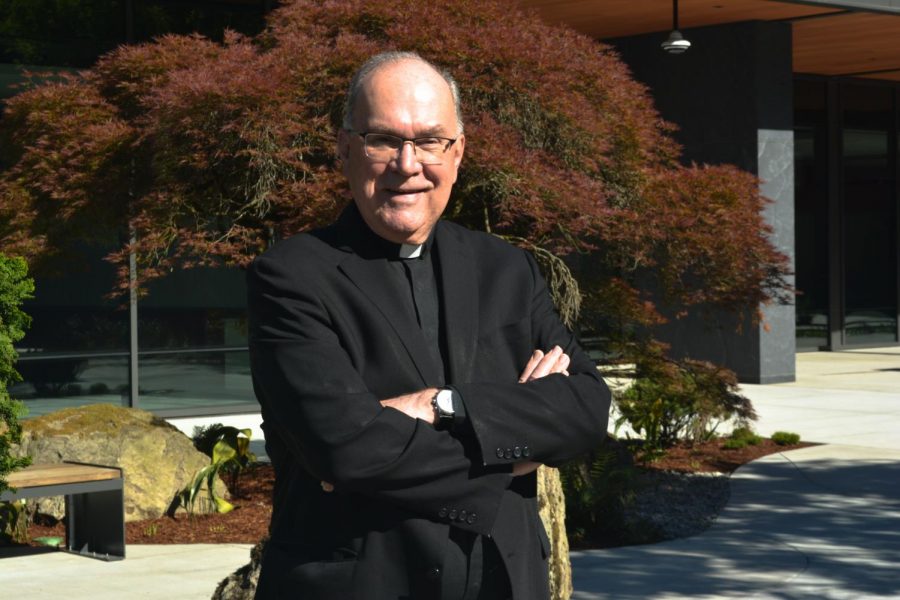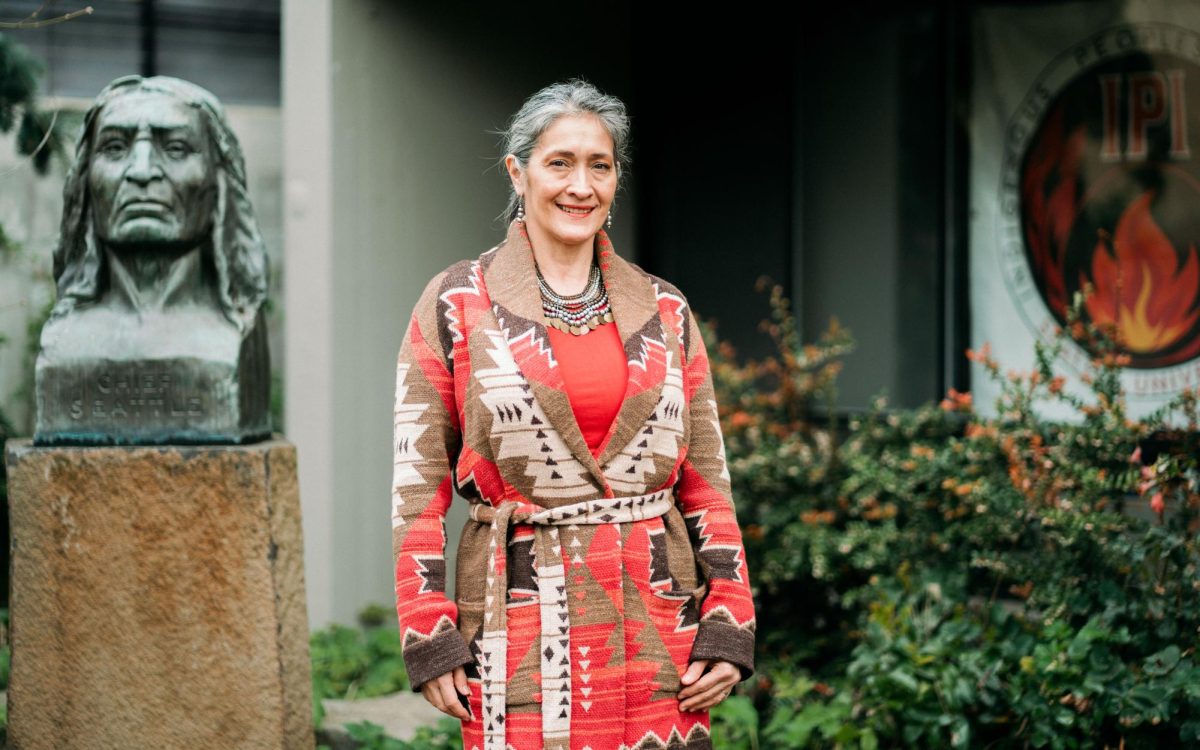For many Seattle University students, the Affordable Care Act has been in place for almost a third of their lives. Now, as the conversation around health care re-enters the political sphere, they may feel lost in the terminology, rhetoric and convoluted legal jargon.
In order to make this conversation accessible for these students, Washington Policy Center’s Young Professionals club at Seattle U hosted a debate on healthcare reform on Thursday.
This debate featured two people arguing for market-based healthcare, meaning healthcare left to insurance companies and the free market, and two people arguing for a single- payer system, which means that the government pays for healthcare, removing insurance companies from the situation entirely.
Rhonda Meadows, Executive Vice President of Population Health at Providence Health and Services, moderated the event.
The panelists included board member of Whole Washington Vivian Queija and Washington State Senator Karen Keiser in favor of single-payer healthcare, and Policy Analyst Roger Stark and President of the Galen Institute Grace-Marie Turner in favor of market-based healthcare.
Patrick McGarry Jr., President of WPC Young Professionals at Seattle U, said the university’s chapter hosted this event in hope of creating dialogue surrounding this current and controversial topic.
He added that both sides of this conversation have valid points, so he believes it’s important for students to understand the bases for these arguments.
At the debate, both sides made clear that they believe everyone should have access to healthcare; they disagreed when it came to how that access should be expanded.
Those on the single-payer side argued that in order to expand healthcare coverage to everyone, it’s necessary to remove insurance companies as mediators seeking profits.
On the market-based side, however, Stark argued that while everyone should have access to healthcare, he didn’t believe that it was the government’s place to ensure that access.
“I think everyone in this room can agree that healthcare is a necessity of life,” Stark said. “But so are food and shelter and clothing. Those are other necessities of life. And think about this for a minute: we don’t have our employers, we don’t have the government, paying for our food, shelter and clothing.”
Stark and Turner also argued that the competitive market would result in higher quality care and lower prices.
“We have so many examples in this country of really amazing things that our economy can do when people are given choice,” Turner said.
Stark added an analogy that over the several decades since cell phones were first invented, the free market has driven down prices and improved what cell phones are capable of.
Queija, however, took issue with this analogy, as well as a later comparison of health insurance to automobile insurance along this same vein.
“You know what, I don’t feel like my body is comparable to a car,” Queija said. “That’s a commodity; my body isn’t.”
Queija argued further that single- payer is effective in that it takes what she says is a 600 percent profit margin right now and uses it for innovation and research, rather than just being part of a paycheck.
Stark concluded by arguing that the root of the problems with healthcare in the U.S. and worldwide is the shortage of healthcare services.
“In every industrialized country, the demand for healthcare far outweighs the supply of healthcare,” Stark said.
As a result, he said, someone needs to make the decision of who gets which operations and how much they will cost.
“Either the government bureaucrats will decide that, or individual patients as consumers of healthcare will decide that,” he said.
One of the attendees, first-year political science major Andrea Escobar went to the event because she wanted to find some clarity and to hear from both sides. She said this was especially important because of the recent conversations surrounding defunding Medicaid and repealing the Affordable Care Act.
However, after hearing from both sides of the debate, Escobar said her opinion didn’t change.
“[The market-based argument] just seemed like it was more about the money,” she said. “The single payer, I felt like they were a lot more likely to see what the people wanted and what’s best for all types of people, of all sorts of economic backgrounds. So that didn’t really change, and if anything it emphasized more that single-payer is what I think we need.”
Escobar expressed disappointment, however, with the turnout, and she encouraged more students to be engaged with these issues in the future.
“People really need to go to these things,” she said. “I feel like a lot of people feel like they don’t need to hear the other side, but I think it’s really important for them to be there and show up, and just show interest because it’s something that’s gonna pertain to them no matter what.”
Josh may be reached at
[email protected]













